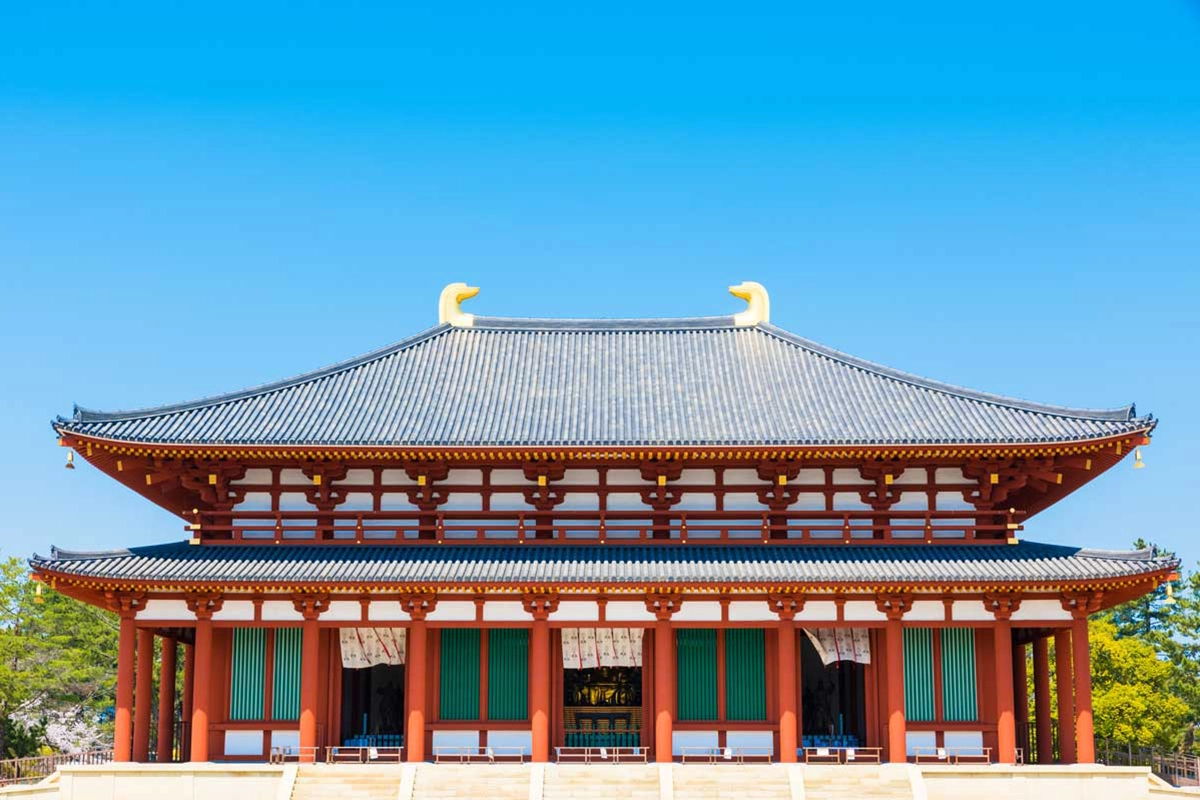We often take a two-day trip to Nara when visiting Kyoto. It’s just over a 30-minute train ride from Kyoto Station via the Kintetsu Limited Express. The city served as Japan’s capital during the 8th century before Kyoto and Tokyo. The four temples and one shine highlighted in this article are all UNESCO World Heritage sites.
Table of Contents:
Day 1: Ancient Temples and Culinary Delights
Day 2: Nature, Deities, and Nightlife
Our recommendation of the itinerary covers the major attractions Nara offers. The first day includes a visit to three UNESCO World Heritage sites and our favorite Kaiseki restaurant. These temple’s locations are not within walking distance of each other. I recommend you take a taxi as they do not offer convenient public transportation. The second-day locations are within walking distance from Nara Station.
Day 1: Ancient Temples and Culinary Delights
Morning – Hōryū-ji Temple
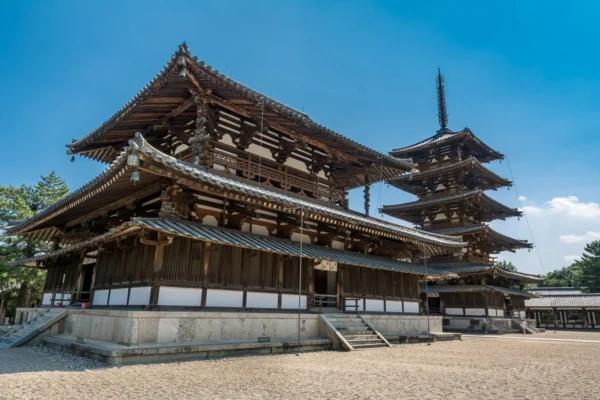
We began out day with a visit to Hōryū-ji, one of the oldest wooden structures in the world. This temple complex, a UNESCO World Heritage site, is a testament to ancient Japanese architecture and Buddhist art. Wander through the tranquil grounds and marvel at the Five-Story Pagoda and the Main Hall, soaking in the serene atmosphere and rich history. We had an English-speaking volunteer who gave us an amazing tour of the complex.
Midday – Yakushi-ji Temple
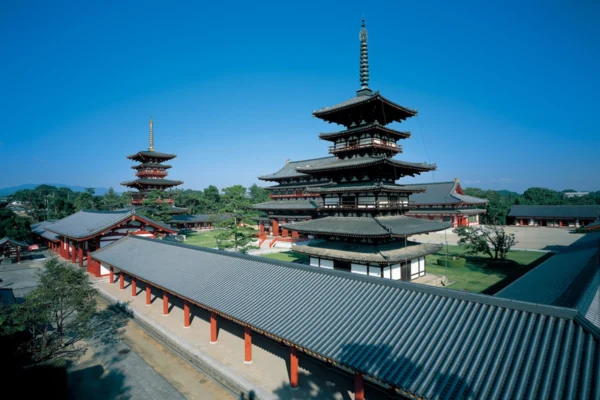
Next, we headed to Yakushi-ji, known for its symmetrical layout and the stunning East Pagoda. This temple, dedicated to the Buddha of healing, features unique architectural designs and a collection of ancient Buddhist statues. This UNESCO World Heritage site is a place that combines spiritual significance with historical and artistic beauty.
Afternoon – Tōshōdai-ji Temple
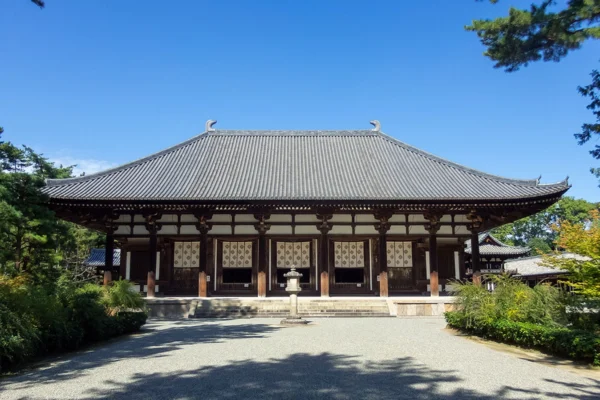
We continued our temple tour at Tōshōdai-ji, a classic example of Nara-era architecture. Founded by a Chinese Buddhist monk, this temple houses various national treasures, including a statue of Rushana Buddha. The tranquil and spacious grounds offer a peaceful retreat, perfect for reflection and admiration of Japan’s cultural heritage. Your third UNESCO World Heritage site of the day!
Evening – Wa Yamamura
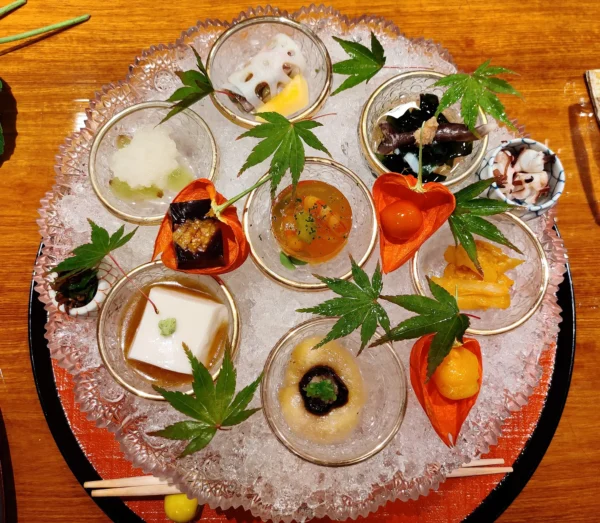
We concluded our day with an exquisite dining experience at Wa Yamamura, a renowned Michelin-starred restaurant. Delight in the seasonal kaiseki cuisine, a traditional multi-course Japanese dinner that emphasizes natural flavors and local ingredients. It’s a perfect blend of art and taste, providing a sophisticated end to our day.
Day 2: Nature, Deities, and Nightlife
Morning – Tōdai-ji Temple
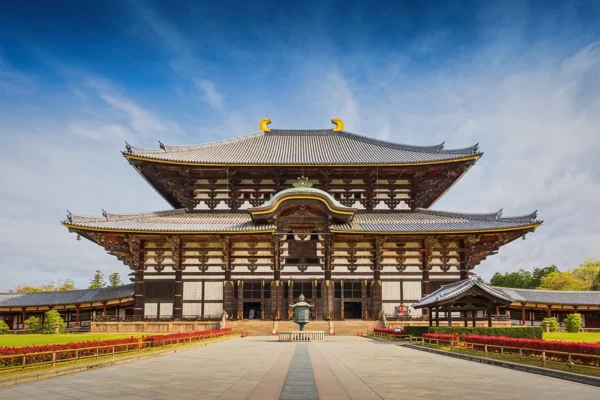
We started our second day at Tōdai-ji, home to the world’s largest bronze statue of Buddha, housed in the Great Buddha Hall. This impressive temple complex is not only a significant religious site but also a symbol of Nara’s historical importance. Exploring its vast grounds and majestic structures is an awe-inspiring experience. This UNESCO World Heritage site is a must-visit location.
Midday – Kasuga-taisha Shrine
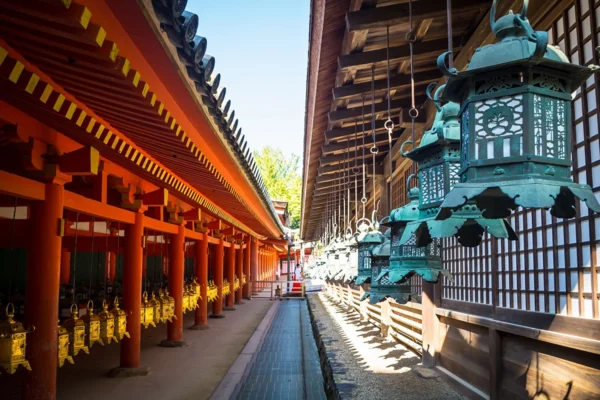
Next, we walked to Kasuga-Taisha, the city’s most celebrated Shinto shrine, and another UNESCO World Heritage site, It is a quick walk from Todai-ji. Famous for its hundreds of bronze and stone lanterns, this shrine is nestled in a mystical forest setting. The walkways leading to the shrine, lined with lanterns, create a magical and spiritual atmosphere, offering a glimpse into Shinto traditions and rituals.
Afternoon – Nara Park
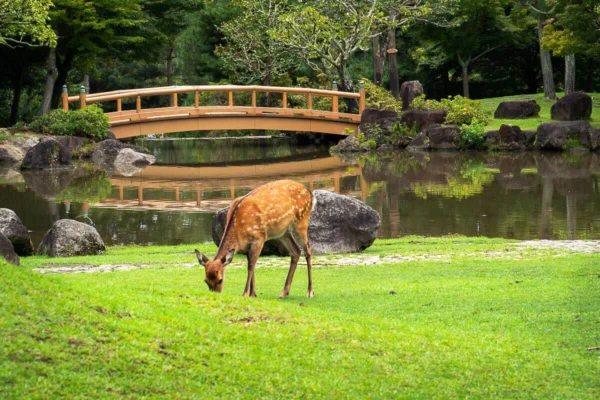
We spent our afternoon in Nara Park, known for its friendly free-roaming deer, considered messengers of the gods in Shinto. This large park is also home to other historical sites and provides a perfect setting for a leisurely stroll or a picnic under the shade of ancient trees. You can’t leave Nara until you feed Shika-senbei for cute deer!
Evening – Lamp Bar
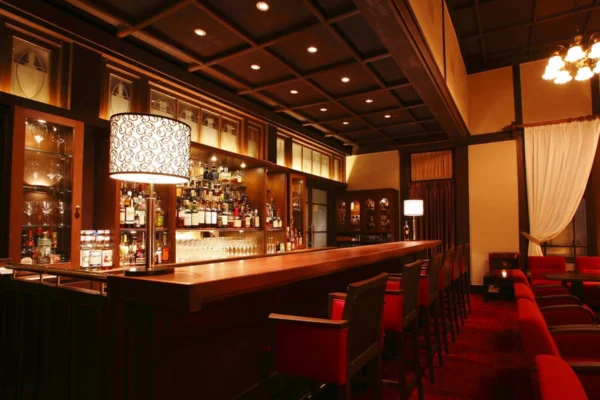
We ended our trip with a relaxing evening at Lamp Bar, a cozy and sophisticated establishment known for its craft cocktails and ambient setting. The bar was ranked number 20 in Asia’s 50 Best Bars 2022, the perfect place to unwind and reflect on your journey through the rich cultural tapestry, savoring a well-crafted drink as you reminisce about your experiences.
This itinerary offers a blend of historical exploration, spiritual encounters, and exquisite culinary experiences, making your two days in Nara a truly memorable journey through the heart of Japan’s cultural heritage.
